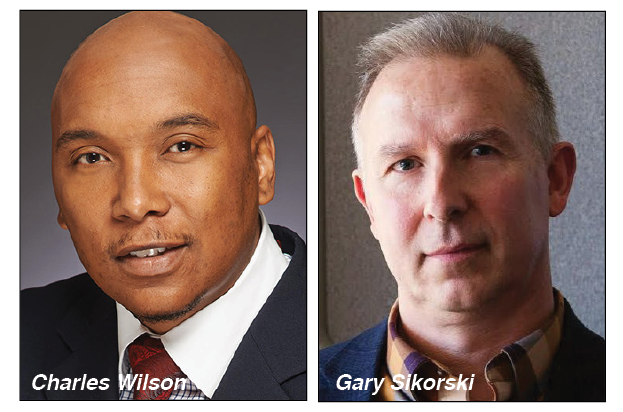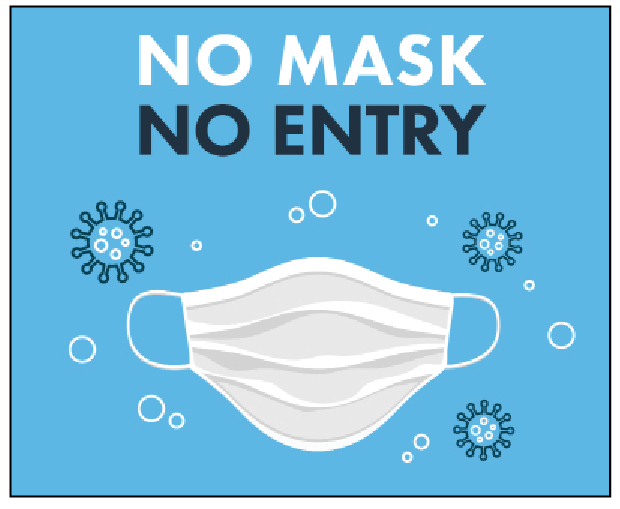Adult nightclubs have always been accustomed to having security staff on hand to prevent or address things that may heat up with a guest. But these occurrences were generally few and far between, and usually at night when club security people were present. With COVID-19, these powder-keg customers can arrive at any time and maybe set off by a simple request to wear a mask.
ED Magazine Legal Correspondent Larry Kaplan sat down with security professionals Charles Wilson and Gary Sikorski of Strategic Club Consultants. Wilson and Sikorski detailed what steps adult clubs can take to de-escalate situations when guests refuse to wear mandatory face masks or follow other necessary mandated protocols.

ED: What’s the best way to control or de-escalate a situation or a person, for example, a guest who won’t wear a face mask?
Sikorski: Our goal in these situations isn’t really to “control” the person or situation because it’s almost impossible to control someone else. Instead, we want to influence them to control themselves. It often comes down to our behavior in response to them.
Wilson: At the end of the day, you’re striving for voluntary compliance. You’re trying to mitigate and de-escalate the situation, not control it. Give the guest as many options as possible so that they can feel they’re the one in control instead of dictating the situation to them. You’re setting the options, but giving them the belief that they’re complying, based on their own decision making.
ED: Making the possible unruly guest believe it’s their idea?
 Wilson: Exactly, you want them to feel it’s voluntary for them. It’s all about respect. You’re avoiding commands like ‘You must’, ‘You shall’, ‘You will.’ Instead, use options like, ‘Hey, can you do this?’ ‘How about this?’ ‘Can you maybe do that?’
Wilson: Exactly, you want them to feel it’s voluntary for them. It’s all about respect. You’re avoiding commands like ‘You must’, ‘You shall’, ‘You will.’ Instead, use options like, ‘Hey, can you do this?’ ‘How about this?’ ‘Can you maybe do that?’
Sikorski: You don’t want to draw a line in the sand. It’s much better when they feel they have options. As Chuck said, use some ‘we/us’ statements like, ‘For us to allow you into the club, we need you to comply with the face mask policy.’ And in many places, you’ll mention the required social distancing policies, as well.
ED: What role does non-verbal communication play in de-escalation and early mitigation/prevention?
Sikorski: Non-verbal communication plays a significant role on both ends. Not only in the cues we’re looking for in them but also in the message and demeanor we’re presenting. We want to always take into account what the individual is saying, but their body language while they’re speaking it, maybe more revealing than their words.
ED: Are guests acting out sometimes looking to test boundaries and looking for direction?
Wilson: At the end of the day, you’re the service that they want. They want to visit your club, and you control whether or not they get in. The more you provide a pathway to get into the club, the happier they’ll be. Presumably, they didn’t come there to start trouble and not get in.
Sikorski: There are those folks predisposed for a fight or a challenge, figuratively speaking. You have something they want; access. So, there’s an implied social contract that they will generally follow. Again, early mitigation is essential so that you can identify those individuals. The ones looking to challenge the norms should be pretty easy to spot.
“At the end of the day, you’re striving for voluntary compliance. You’re trying to mitigate and de-escalate the situation, not control it. Give the guest as many options as possible so that they can feel they’re the one in control instead of dictating the situation to them. You’re setting the options, but giving them the belief that they’re complying, based on their own decision making.” – Charles Wilson
ED: How important is staff behavior in setting an example for guests?
Sikorski: I think we must pattern and model the behavior we expect our guests to follow. I can’t tell you how many places I’ve been where staffers wear their masks under their nose or hanging from one ear. And they’re often gathered together in a tight group, not socially distanced. We have to be mindful of what we’re projecting. If we’re expecting people to wear masks properly, we must wear them properly ourselves. It can’t be, do as I say, not as I do.
When approaching a non-compliant guest, it’s crucial that you don’t start with an automatic hardline ‘No mask, no entry.’ When someone refuses to wear a mask, have some responses pre-loaded. For example, ‘Listen, for us to allow you to come in, you must comply with the guidelines. So, you will need to wear a mask.’
Acknowledge their perspective, ‘Hey, I get it; disagree with what’s going on with COVID-19, but for us to allow you to join us today, you have to wear a mask.’
You’re acknowledging that they may have a different perspective. In a way, you are partnering with them, saying, ‘If guests don’t wear masks, we can’t open. If you don’t think you can wear a mask today, I get it. Maybe come back another time?’
That’s important because you’re saying that without a mask, we can’t let you in now, but if you change your behavior or the policy changes, you can come in later. So, it’s not a hard no forever, just not at this time.
Wilson: The staff should make sure they leverage whatever their state’s EO’s require, having it clearly posted. It’s best to post signs, starting in the parking lot, before guests even enter the club, saying ‘We must comply with state requirements.’ Rather than signs saying ‘masks required’ in the parking lot, perhaps use the gentler message, ‘Please don’t forget your mask.’ Don’t wait until the last point of contact; then they have to return to their car. Also, have the valets remind customers when they park their vehicles.
Sikorski: There you go. Be sure to have disposable masks available for guests. You may want to look into branded masks with the club’s name or a cool graphic or designating VIP or high roller. People like free stuff.
Consistent messaging is critical. The managers, staff, and security must be trained to communicate the same message. You can’t have the security or staff try to enforce requirements, only to have the manager overrule them and let in non-compliant customers.
Once they become angry and it devolves into a shouting match, the opportunity to de-escalate is probably gone, and you’ll have to take a different course of action. That’s why early mitigation and prevention is so essential to prevent the situation from devolving. You can’t argue with a drunk, and you can’t reason with an angry person.
Larry Kaplan has, for 20 years, been the Legal Correspondent for ED Publications. Mr. Kaplan is a business broker in the sale and purchase of adult venues and the Executive Director of the ACE of Michigan adult nightclub state trade association. Contact Larry Kaplan at 313-815-3311 or email larry@kaplanclubsales.com. Charles Wilson is a former Detroit Police command officer with 20 years of law enforcement and chief of staff experience who now leads a security team of over 400 security professionals at casinos, hotels, sports arenas and in the corporate world. Contact Charles Wilson at chuck@sccconsults.com. Gary Sikorski is a decorated law enforcement professional and trainer with over 30 years of experience and the director of training at Strategic Club Consultants, LLC. Contact Gary Sikorski at 734-564-2249 or email gary@sccconsults.com.

































